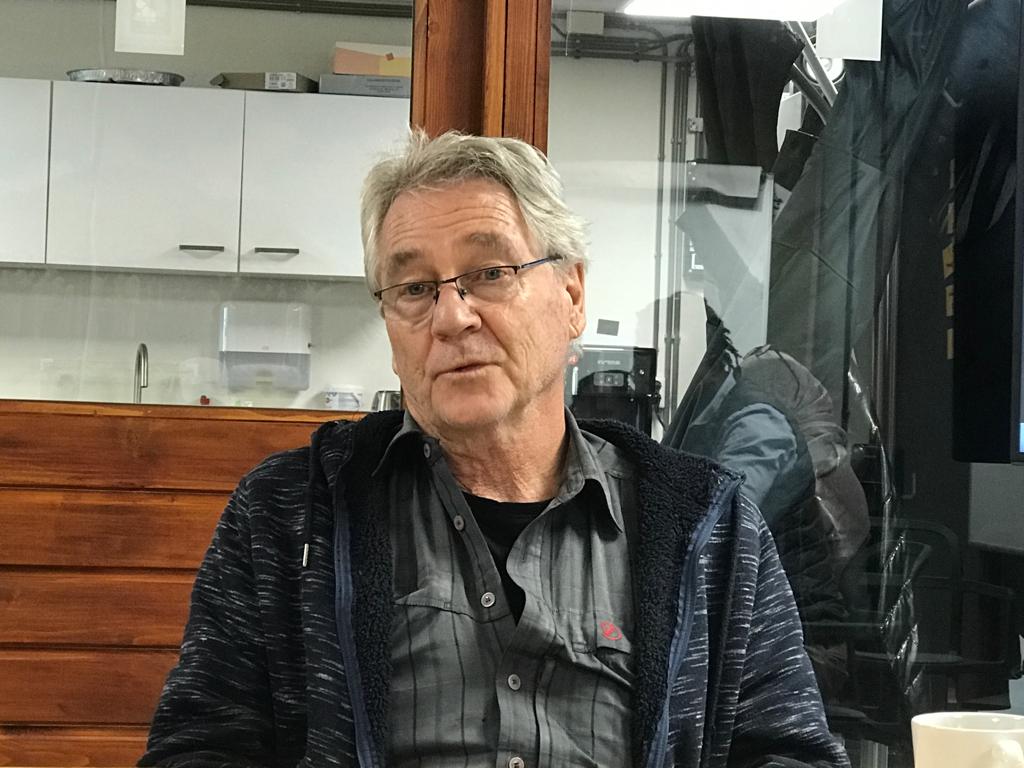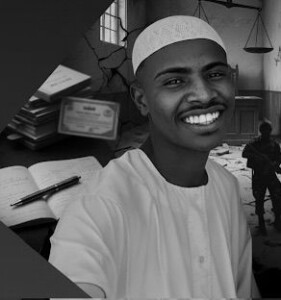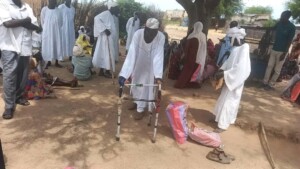Africa correspondent: ‘Our children and grandchildren will struggle with the aftereffects of Sudan war’

Koert Lindijer, seasoned Dutch journalist, and Africa correspondent for NOS Nieuws of the Dutch national TV broadcaster and respected NRC Handelsblad newspaper, speaks to reporters at Radio Dabanga’s Amsterdam studios yesterday (Photo: RD)
The legacy of the current conflict that erupted on April 15 in Sudan between the Sudanese Armed Forces (SAF) and the Rapid Support Forces (RSF) “will be felt for decades and decades”, Koert Lindijer, seasoned Dutch journalist, and Africa correspondent for NOS Nieuws of the Dutch national TV broadcaster and respected NRC Handelsblad newspaper, told reporters during a visit to Radio Dabanga’s Amsterdam studios yesterday.
Lindijer also discussed the challenges presented by the Sudan war, and urges against the spread of hatred. He expressed deep concern for the long-term repercussions of the alarming trend of targeting infrastructure by parties in the war. “It means that our children and grandchildren will struggle with the aftereffects of this war.” Acknowledging Sudan’s already fragile state since independence, he pointed out the significant shift from “peripheral conflicts” to a more centralised and expansive battleground.
‘A genocide takes 120 years before it is felt and seen as historical fact…’
“What worries me most is the spread of hatred”, Lindijer says. “Did you know that a genocide takes 120 years before it is felt and seen as historical fact, until the last person is told by their families what happened? What is happening now, whether we call it ethnic cleansing or genocide is not the issue. What matters is that damage is being done to people’s souls, and hatred has spread. The legacy of this war will be felt for decades and decades.”
‘The legacy of this war will be felt for decades and decades…’
Acknowledging Sudan’s historical economic challenges, the journalist remarked: “Sudan has always been a fragile country, and this ongoing war is so destructive that I cannot advise Sudanese refugees in Kenya to return to their homeland once the war ends.” Lindijer, who is based in Nairobi, anticipated the shock refugees might face upon returning to a nation ravaged by war, and that rebuilding will be an arduous task.
Commenting on the support of some in Sudan for destroying infrastructure to achieve military victory, Lindijer did not mince words: “Stupid people are present everywhere” he declared. Firmly opposing sabotage and destruction as means to victory, he drew from his experiences in Somalia during its collapse and emphasised the enduring struggle to rebuild it. “It will be hundreds of times more difficult for Sudan to achieve this task.”











 and then
and then